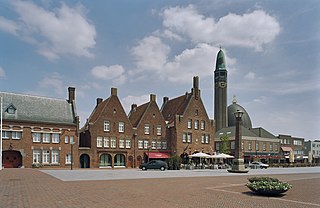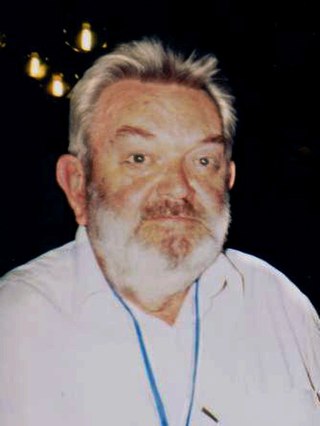Related Research Articles

Murray Gell-Mann was an American physicist who played a preeminent role in the development of the theory of elementary particles. Gell-Mann introduced the concept of quarks as the fundamental building blocks of the strongly interacting particles, and the renormalization group as a foundational element of quantum field theory and statistical mechanics. He played key roles in developing the concept of chirality in the theory of the weak interactions and spontaneous chiral symmetry breaking in the strong interactions, which controls the physics of the light mesons. In the 1970s he was a co-inventor of Quantum Chromodynamics (QCD) which explains the confinement of quarks in mesons and baryons and forms a large part of the Standard Model of elementary particles and forces.

Wolfram Mathematica is a software system with built-in libraries for several areas of technical computing that allow machine learning, statistics, symbolic computation, data manipulation, network analysis, time series analysis, NLP, optimization, plotting functions and various types of data, implementation of algorithms, creation of user interfaces, and interfacing with programs written in other programming languages. It was conceived by Stephen Wolfram, and is developed by Wolfram Research of Champaign, Illinois. The Wolfram Language is the programming language used in Mathematica. Mathematica 1.0 was released on June 23, 1988 in Champaign, Illinois and Santa Clara, California.

Stephen Wolfram is a British-American computer scientist, physicist, and businessman. He is known for his work in computer science, mathematics, and theoretical physics. In 2012, he was named a fellow of the American Mathematical Society. He is currently an adjunct professor at the University of Illinois Department of Computer Science.
A computer algebra system (CAS) or symbolic algebra system (SAS) is any mathematical software with the ability to manipulate mathematical expressions in a way similar to the traditional manual computations of mathematicians and scientists. The development of the computer algebra systems in the second half of the 20th century is part of the discipline of "computer algebra" or "symbolic computation", which has spurred work in algorithms over mathematical objects such as polynomials.
A New Kind of Science is a book by Stephen Wolfram, published by his company Wolfram Research under the imprint Wolfram Media in 2002. It contains an empirical and systematic study of computational systems such as cellular automata. Wolfram calls these systems simple programs and argues that the scientific philosophy and methods appropriate for the study of simple programs are relevant to other fields of science.

Waalwijk is a municipality and a city in the southern Netherlands. It had a population of 48,815 in 2021 and is located near the A59 and N261 motorways. The villages of Capelle, Vrijhoeve-Capelle, Sprang and Waspik together with the city of Waalwijk form the municipality of Waalwijk. The city has an old town center, which has recently been modernized.

In symbolic computation, the Risch algorithm is a method of indefinite integration used in some computer algebra systems to find antiderivatives. It is named after the American mathematician Robert Henry Risch, a specialist in computer algebra who developed it in 1968.

Gerardus (Gerard) 't Hooft is a Dutch theoretical physicist and professor at Utrecht University, the Netherlands. He shared the 1999 Nobel Prize in Physics with his thesis advisor Martinus J. G. Veltman "for elucidating the quantum structure of electroweak interactions".

Martinus Justinus Godefriedus "Tini" Veltman was a Dutch theoretical physicist. He shared the 1999 Nobel Prize in physics with his former PhD student Gerardus 't Hooft for their work on particle theory.
Computational science, also known as scientific computing, technical computing or scientific computation (SC), is a division of science that uses advanced computing capabilities to understand and solve complex physical problems. This includes
Symbolic Manipulation Program, usually called SMP, was a computer algebra system designed by Chris A. Cole and Stephen Wolfram at Caltech circa 1979. It was initially developed in the Caltech physics department with contributions from Geoffrey C. Fox, Jeffrey M. Greif, Eric D. Mjolsness, Larry J. Romans, Timothy Shaw, and Anthony E. Terrano.
Veltman is a Dutch surname translating as "field man". Notable people with the surname include:

Robert Brout was an American theoretical physicist who made significant contributions in elementary particle physics. He was a professor of physics at Université Libre de Bruxelles where he had created, together with François Englert, the Service de Physique Théorique.
Computational particle physics refers to the methods and computing tools developed in and used by particle physics research. Like computational chemistry or computational biology, it is, for particle physics both a specific branch and an interdisciplinary field relying on computer science, theoretical and experimental particle physics and mathematics. The main fields of computational particle physics are: lattice field theory, automatic calculation of particle interaction or decay and event generators.
FORM is a symbolic manipulation system. It reads text files containing definitions of mathematical expressions as well as statements that tell it how to manipulate these expressions. Its original author is Jos Vermaseren of Nikhef, the Dutch institute for subatomic physics. It is widely used in the theoretical particle physics community, but it is not restricted to applications in this specific field.
The following timeline starts with the invention of the modern computer in the late interwar period.
The following is a timeline of scientific computing, also known as computational science.

The Wolfram Language is a proprietary, general high-level multi-paradigm programming language developed by Wolfram Research. It emphasizes symbolic computation, functional programming, and rule-based programming and can employ arbitrary structures and data. It is the programming language of the mathematical symbolic computation program Mathematica.
References
- ↑ Computer Algebra in Particle Physics Stefan Weinzierl
- ↑ Nobel Lecture by Martinus J.G. Veltman held on December 8, 1999 "From Weak Interactions to Gravitation", p. 4 of the paper
- 1 2 3 Martinus J. G. Veltman; David N. Williams (9 June 1993). "Schoonschip '91". arXiv: hep-ph/9306228 .
- ↑ Stephen Wolfram (2021). "Tini Veltman (1931–2021): From Assembly Language to a Nobel Prize." In: Stephen Wolfram Writings.